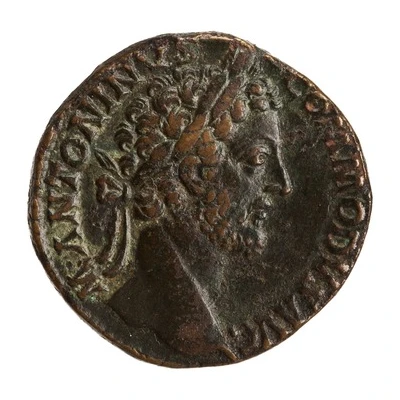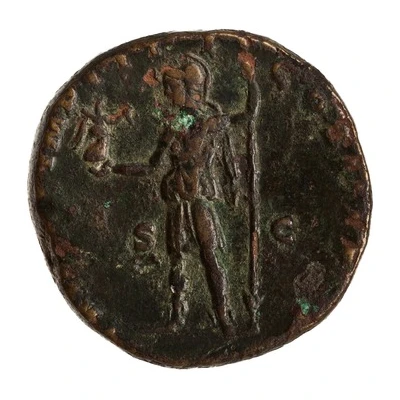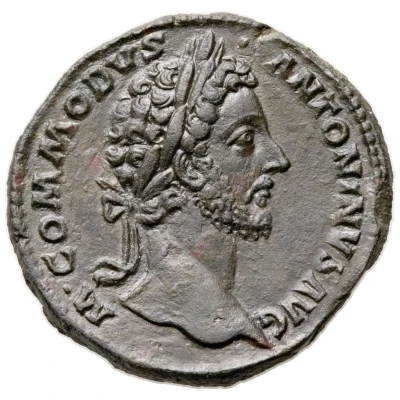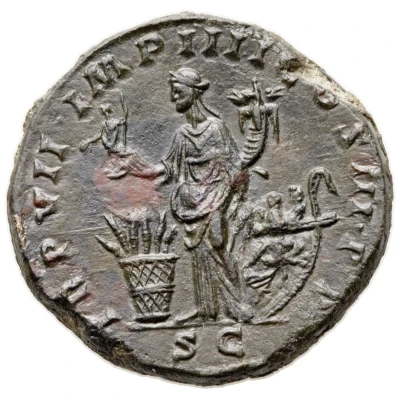


© American Numismatic Society (ANS)
Sestertius - Commodus TR P VII IMP IIII COS III P P S C; Roma and Victory
| Bronze | 26.4 g | 29 mm |
| Issuer | Rome › Roman Empire (27 BC - 395 AD) |
|---|---|
| Emperor | Commodus (Lucius Aurelius Commodus) (177-192) |
| Type | Standard circulation coin |
| Years | 181-182 |
| Value | 1 Sestertius = ¼ Denarius |
| Currency | Denarius, Reform of Augustus (27 BC – AD 215) |
| Composition | Bronze |
| Weight | 26.4 g |
| Diameter | 29 mm |
| Shape | Round (irregular) |
| Technique | Hammered |
| Demonetized | Yes |
| Updated | 2024-10-06 |
| Numista | N#265642 |
|---|---|
| Rarity index | 97% |
Reverse
Roma, helmeted, draped, standing left, holding Victory in extended right hand and vertical spear in left hand.
Script: Latin
Lettering: TR P VII IMP IIII COS III P P S C
Translation:
Tribunicia Potestate Septima, Imperator Quartum, Consul Tertium, Pater Patriae. Senatus Consultum.
Holder of tribunician power for the seventh time, supreme commander (Imperator) for the fourth time, consul for the third time, father of the nation. Decree of the senate.
Comment
Mass varies: 23.83–28.66 g;Example of this type:
American Numismatic Society (ANS)
Source:
Online Coins of the Roman Empire (OCRE)
Interesting fact
One interesting fact about this coin is that it features an image of the Roman goddess Victory on the reverse side, which was a common motif on Roman coins during the reign of Commodus. Victory is depicted standing on the prow of a ship, symbolizing the power and dominance of the Roman Empire. The image of Victory was meant to convey the idea that the Roman Empire was triumphant and victorious, and that its power and influence would continue to expand. This coin is a tangible representation of the propaganda efforts of the Roman Empire during this time period, and it provides a unique glimpse into the cultural and political values of the ancient Romans.

